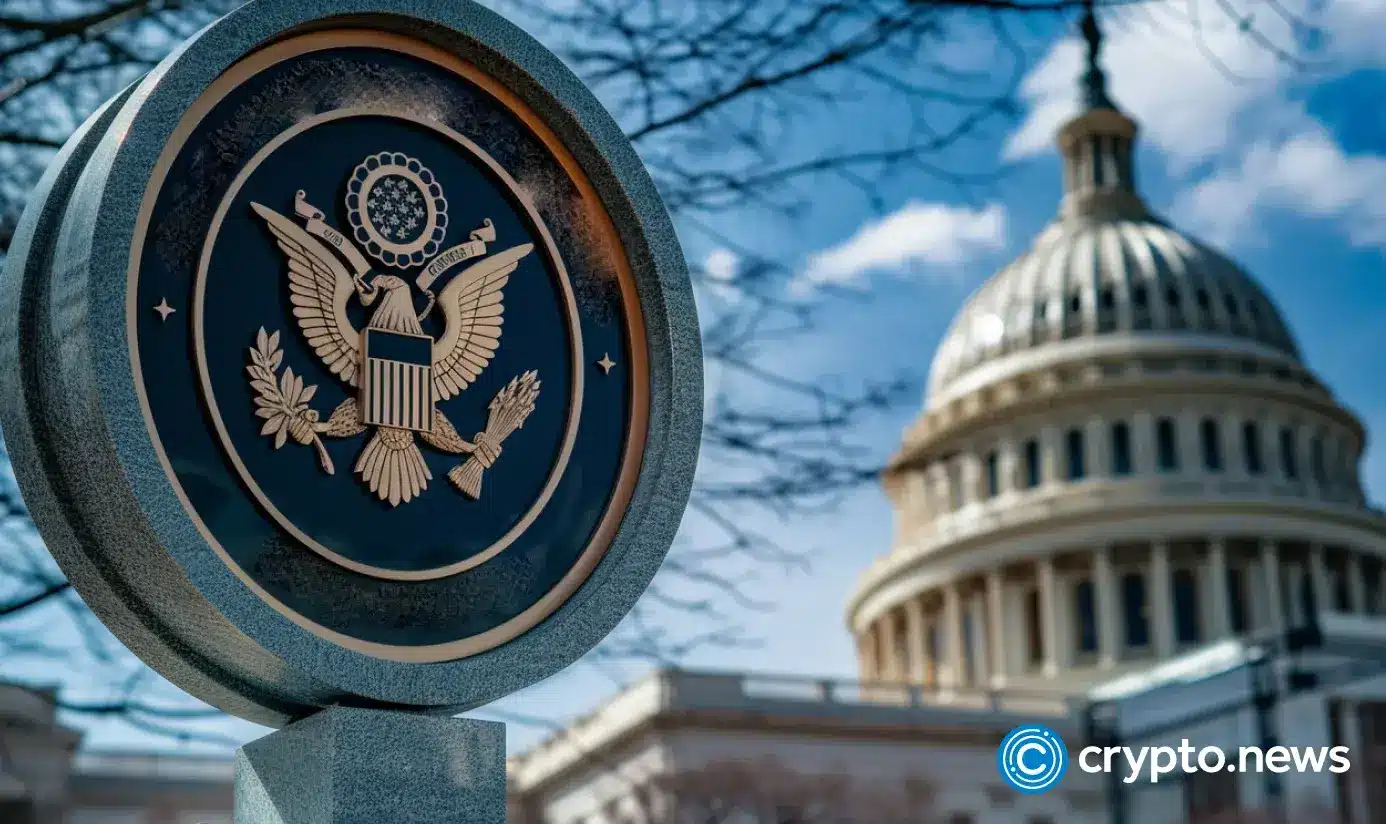crime
Crypto cops record $8.2b in financial remedies for investors: SEC
Published
5 hours agoon
By
admin

For all the complaints levied against the crypto-strict U.S. Securities and Exchange Commission (SEC), the agency successfully obtained orders for $8.2 billion in financial remedies for 2024.
This is despite a 26% decrease in total enforcement actions.
The successful prosecution of Terraform Labs helped the agency achieve this milestone. Once a jury verdict found Terraform Labs and founder Do Kwon liable for fraud, defendants agreed to a final judgment ordering them to pay more than $4.5 billion in penalties — the highest amount ever obtained by the SEC following a trial.
It accounted for more than half of the total monetary judgments, according to the details from the press release.
SEC’s 583 enforcement actions
The SEC’s enforcement efforts in 2024 showed significant shifts across multiple categories, with 583 total enforcement actions. This includes 431 stand-alone actions representing a 14% decrease, 93 follow-on administrative proceedings showing a 43% decrease, and 59 delinquent filing actions marking a 51% decline.
Despite the reduced number of cases, the financial impact reached these levels, combining $6.1 billion in disgorgement and prejudgment interest with $2.1 billion in civil penalties.
In the cryptocurrency sector, the SEC pursued several major cases, including charges against Silvergate Capital for misleading BSA/AML compliance disclosures and action against Barnbridge DAO for unregistered securities offerings.
The agency also tackled the HyperFund pyramid scheme involving $1.7 billion and the NovaTech fraud case affecting 200,000 investors. Notable first-time enforcement actions targeted relationship investment scams involving NanoBit and CoinW6 platforms.
The SEC’s Division of Enforcement won all five federal district court cases, including its crypto-related trial against Terraform Labs. This success extended to investor protection measures, with 124 individuals barred from serving as officers and directors of public companies.
SEC Chair Gary Gensler emphasized the Division’s role as a “steadfast cop on the beat,” while Acting Director Sanjay Wadhwa noted increased market participant cooperation and self-reporting.
The report somewhat justifies Gensler’s role as the top crypto enforcer. The outgoing SEC chair, set to resign on Jan. 20, faced harsh criticism from crypto enthusiasts and retail traders throughout his tenure for his regulatory approach.
And yet, the SEC distributed $345 million to harmed investors and processed a record 45,130 tips, complaints, and referrals, including over 24,000 whistleblower tips, resulting in $255 million in whistleblower awards.
The agency’s success in returning funds to investors has been substantial, with more than $2.7 billion distributed since fiscal year 2021.
But most of the actual scams were cyrpto 😬
— sean combs (@William48759211) November 22, 2024
Source link
You may like


Here’s Why XRP Price Will Hit $20


3 cryptos under $0.5 that experts believe could deliver 1500% returns


Gemini’s Cameron Winklevoss Demands Fresh Probe Into SBF


Dogecoin Jumps to 3-Year High Price—Before Bitcoin Cools and Meme Coins Plunge


Stellar Price Skyrockets Over 80%, XLM Rally to $1 Imminent?


Elon Musk Tweet of Joe Rogan Profile Sends DOGE Price Higher
Canada
Crypto influencer Kevin Mirshahi found dead in Canadian park
Published
1 week agoon
November 14, 2024By
admin

The body of Kevin Mirshahi, a 25-year-old cryptocurrency influencer who had been missing since June, was found dead.
Mirshahi’s body was discovered in Montreal’s Île-de-la-Visitation Park, as confirmed by the Sûreté du Québec, according to the Montreal Gazette.
A passerby came across his decomposing body, prompting an investigation that identified him through an autopsy.
The case, which marks Montreal’s 32nd homicide of 2024, has highlighted a concerning pattern of violence within the crypto community, raising questions about the safety of high-profile figures in the sector.
Timeline of Mirshahi’s disappearance and death
Mirshahi’s disappearance occurred on June 21. Early that morning, he and three others were allegedly abducted from a condo building in Old Montreal.
Montreal police were alerted after receiving a 911 call about a disturbance at a residence near de la Commune and St-Hubert Streets, according to The Gazette.
CRYPTO INFLUENCER FOUND DEAD
Kevin Mirshahi, a Montreal crypto influencer, was discovered in Île-de-la-Visitation park months after a June abduction.
A 32-year-old woman’s facing murder charges, but no ties to his crypto firm “Crypto Paradise Island” confirmed.
Mirshahi’s… pic.twitter.com/tgVq43uwN9
— Mario Nawfal’s Roundtable (@RoundtableSpace) November 14, 2024
While the three other abductees were quickly located, Mirshahi remained missing, prompting police to escalate the investigation to the SQ.
During the initial investigation, police identified Joanie Lepage, a 32-year-old woman from Les Cèdres, Quebec, as a suspect, per The Gazette.
In August, she was arrested and charged with first-degree murder and involvement in Mirshahi’s abduction. Authorities allege that Lepage played a role in concealing Mirshahi’s death, though investigations are ongoing to determine if other suspects may have been involved.
Mirshahi’s background in crypto
Mirshahi was a prominent figure in Montreal’s cryptocurrency scene, primarily due to his management of a private investment firm called “Crypto Paradise Island,” per The Gazette.
His activities in the crypto space attracted public and regulatory scrutiny, particularly from Quebec’s investment authority, the Autorité des Marchés Financiers.
The AMF placed restrictions on Mirshahi in 2021, barring him and two associates from acting as investment advisers or conducting securities transactions. Two weeks after his disappearance, this ban was reinforced in July 2024, limiting his online activities and requiring him to cease promoting related content on social media.
This case isn’t the first crypto-related crime that happened in Canada this month. On Nov. 6, Toronto police investigated the kidnapping of WonderFi CEO Dean Skurka, who was abducted in downtown Toronto and released after a $1 million ransom was paid electronically.
Source link
crime
Tether helps Canadian police recover stolen crypto
Published
2 weeks agoon
November 9, 2024By
admin

Tether recently assisted the Ontario Provincial Police in recovering $10,000 CAD worth of stolen cryptocurrency.
This recovery was achieved through Tether’s collaboration with the OPP’s Cyber Investigations Team, showcasing the company’s commitment to supporting law enforcement in combating cybercrime.
Tether responded to the OPP’s request by freezing the Tether (USDT) involved in the theft, which allowed the digital assets to be returned to their rightful owner.
Detective Staff Sergeant Addison Hunter of the OPP acknowledged Tether’s voluntary cooperation as essential in recovering the stolen funds, according to Tether’s press release.
Tether has established itself as a partner to law enforcement in tackling cybercrime, claiming it has aided over 195 law enforcement agencies across 48 countries.
Tether also announced on November 8 that it had completed its first funding transaction in a Middle East crude oil investment, expanding the company’s ventures beyond just crypto.
Tether in the hot seat?
Recently, on the United States legal front, Tether denied reports that the company was under investigation for anti-money-laundering and sanctions law violations.
Manhattan prosecutors were reportedly investigating whether Tether’s cryptocurrency had been involved in illegal activities. The U.S. Treasury Department was also said to be considering sanctions on Tether, which could potentially limit American business dealings with the company.
Ceo Paolo Ardoino rejected these claims on X, asserting there was no indication of an investigation and calling the reports “old noise.”
Source link
crime
Nic Carter slams Minneapolis Fed President for saying crypto is ‘almost never’ used outside of criminal activity
Published
1 month agoon
October 22, 2024By
admin

Venture Capitalist Nic Carter criticizes Minneapolis Federal Reserve President Neel Kashkari for his remarks on how crypto is “almost never” used outside of illicit activity, even though the data tells a different story.
In an X post on Oct. 22, Nic Carter wrote “being this wrong should be illegal” in response to Neel Kashkari’s remarks about cryptocurrency being mostly used for illegal activities. He viewed Kashkari’s comments as unfortunate, as he is one of the top ten most important financial regulators on the planet.
Carter followed up his post by linking several data sources that disprove Kashkari’s assumption, including a report from blockchain data firm Chainalysis that found only 0.34% of all crypto transactions in 2023 had connections to illegal activity.
The report revealed that illicit transactions in crypto peaked in 2019 at just 1.29%.
At a Wisconsin Town Hall event hosted by the Chippewa Falls Area Chamber of Commerce on Oct. 21, Minneapolis Fed President, Neel Kashkari, claimed that “very few transactions were actually happening” in crypto.
“They’re not paying for goods and services using crypto. It almost never happens unless people are buying drugs or other illegal activities,” said Kashkari.
A recent study by Crypto ISAC revealed that cash remains the preferred criminal’s financial tool for criminal activities. Although cryptocurrencies have been linked to number of high-profile crimes, including exchange collapses and thefts, the actual portion is still significantly small.
Though it is difficult to track the exact amount of illicit activity in the traditional finance space, Crypto ISAC notes that the estimated amount of money laundered globally in one year is 2% to 5% of global GDP, which ranges between $800 billion to $2 trillion.
Out of that total number, only 0.34% of the transaction volume consists of cryptocurrencies. The U.S. Treasury also echoed these findings, stating that cash continues to be the primary preferred method for money laundering because of its anonymity, stability, and ubiquity.
Kashkari’s stance on cryptocurrency has remained the same in the past few years. In Feb. 2024, Kashkari said that Bitcoin(BTC) is a risky asset with no practical use in real economic scenarios, further questioning the cryptocurrency’s ability to be an effective hedge against inflation.
On Oct. 17, the Minneapolis Fed published a paper urging governments to either ban Bitcoin or enact a Bitcoin tax if they want to maintain their permanent primary deficits.
Source link

Here’s Why XRP Price Will Hit $20

3 cryptos under $0.5 that experts believe could deliver 1500% returns

Gemini’s Cameron Winklevoss Demands Fresh Probe Into SBF

Dogecoin Jumps to 3-Year High Price—Before Bitcoin Cools and Meme Coins Plunge

Crypto cops record $8.2b in financial remedies for investors: SEC

Stellar Price Skyrockets Over 80%, XLM Rally to $1 Imminent?

Elon Musk Tweet of Joe Rogan Profile Sends DOGE Price Higher

Survival of the healthiest: Creating a successful crypto

Cardano Hydra Unveils Gamified Test Campaign, ADA Price Reacts

The DeFi duo with potential to multiply a crypto portfolio

Bitcoin Rally Benefits From US Buyers

BTC Continues To Soar, Ripple’s XRP Bullish

Ethereum whales accumulate RCO Finance after 2025 predictions hint at a 19,405% rally

US PCE, FOMC Minutes, & Crypto Expiry In Focus, Brace For Market Impact

Cardano Primed To Continue Surging As Whales and Institutions Accumulate ADA, Says Crypto Analyst
182267361726451435

Why Did Trump Change His Mind on Bitcoin?

Top Crypto News Headlines of The Week

New U.S. president must bring clarity to crypto regulation, analyst says

Ethereum, Solana touch key levels as Bitcoin spikes

Bitcoin Open-Source Development Takes The Stage In Nashville

Will XRP Price Defend $0.5 Support If SEC Decides to Appeal?

Bitcoin 20% Surge In 3 Weeks Teases Record-Breaking Potential

Ethereum Crash A Buying Opportunity? This Whale Thinks So

Shiba Inu Price Slips 4% as 3500% Burn Rate Surge Fails to Halt Correction

‘Hamster Kombat’ Airdrop Delayed as Pre-Market Trading for Telegram Game Expands

Washington financial watchdog warns of scam involving fake crypto ‘professors’

Citigroup Executive Steps Down To Explore Crypto
Mostbet Güvenilir Mi – Casino Bonus 2024

Bitcoin flashes indicator that often precedes higher prices: CryptoQuant
Trending

 2 months ago
2 months ago182267361726451435

 Donald Trump4 months ago
Donald Trump4 months agoWhy Did Trump Change His Mind on Bitcoin?

 24/7 Cryptocurrency News3 months ago
24/7 Cryptocurrency News3 months agoTop Crypto News Headlines of The Week

 News3 months ago
News3 months agoNew U.S. president must bring clarity to crypto regulation, analyst says

 Bitcoin4 months ago
Bitcoin4 months agoEthereum, Solana touch key levels as Bitcoin spikes

 Opinion4 months ago
Opinion4 months agoBitcoin Open-Source Development Takes The Stage In Nashville

 Price analysis4 months ago
Price analysis4 months agoWill XRP Price Defend $0.5 Support If SEC Decides to Appeal?

 Bitcoin4 months ago
Bitcoin4 months agoBitcoin 20% Surge In 3 Weeks Teases Record-Breaking Potential


